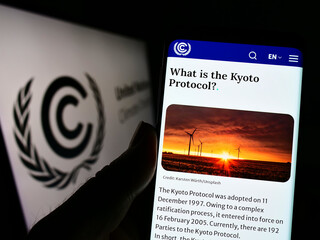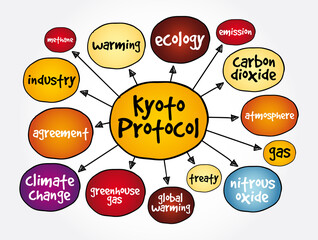The Kyoto Protocol, adopted in 1997, remains one of the most significant international agreements aimed at combating climate change. But what progress has been made since its beginning, and what challenges still lie ahead?
The Kyoto Protocol was a significant milestone in the fight against climate change, marked by the commitment of industrialized countries to reduce their greenhouse gas emissions. The agreement, which was signed in 1997 and took effect in 2005, aimed to reduce the emission of six greenhouse gases by 5.2% compared to 1990 levels over a period of five years.
In the years since its inception, the Kyoto Protocol has been praised for its success in raising awareness about the urgent need to address climate change, as well as its contributions to reducing emissions and promoting sustainable development.
However, it has also faced numerous challenges, including questions about its effectiveness and its future.
The Successes of the Kyoto Protocol
The Kyoto Protocol has been instrumental in promoting a global conversation about the importance of reducing greenhouse gas emissions.
- Creation of the Clean Development Mechanism (CDM)
The CDM has been one of the most important achievements of the Kyoto Protocol. It allows developed countries to invest in emission-reducing projects in developing countries and receive credits in return.
These credits can then be used to offset the developed country's own emissions, helping to reduce the overall global emissions.
- Establishment of the Joint Implementation (JI) Mechanism
The JI mechanism has been another success of the Kyoto Protocol, providing a platform for developed countries to collaborate on emission-reducing projects and receive credits for their efforts.
- Encouraged international cooperation
The Kyoto Protocol helped to establish a framework for international cooperation on climate change, bringing countries together to work towards a common goal. This has paved the way for further action and more ambitious agreements, such as the Paris Agreement.
This has encouraged countries to work together and has helped to reduce global emissions.
The Challenges of the Kyoto Protocol
Despite these successes, the Kyoto Protocol has faced a number of challenges since its adoption. One of the biggest challenges has been the lack of participation from some of the world's largest emitters.
The United States, for example, never ratified the Protocol and has since withdrawn from the agreement entirely. This has left a significant gap in the global effort to reduce emissions and has made it difficult for the Protocol to achieve its full potential.
Another challenge has been the effectiveness of the emissions targets set by the Protocol. Although the Protocol has helped to reduce emissions in some countries, global emissions continue to rise and are now at their highest levels in history.
This has raised questions about the adequacy of the emissions targets and has led to calls for more ambitious targets in the future.
The Future of the Kyoto Protocol
Despite these challenges, the Kyoto Protocol remains an important tool in the fight against climate change. In recent years, there has been growing momentum towards a new international agreement to replace the Protocol, with countries around the world committing to more ambitious emissions reduction targets.
This has been reflected in the Paris Agreement, which was adopted in 2015 and aims to limit global warming to well below 2°C above pre-industrial levels.
The Kyoto Protocol has played a significant role in the global effort to combat climate change.
While there have been successes, such as the creation of the Clean Development Mechanism and Joint Implementation, the Protocol has also faced challenges, such as a lack of participation from some of the world's largest emitters and the inadequacy of its emissions targets.
However, the future of the Protocol remains bright, with a growing momentum towards a new international agreement and more ambitious emissions reduction targets.
As the world continues to grapple with the impacts of climate change, the Kyoto Protocol will remain an important tool in the fight against this global challenge.













